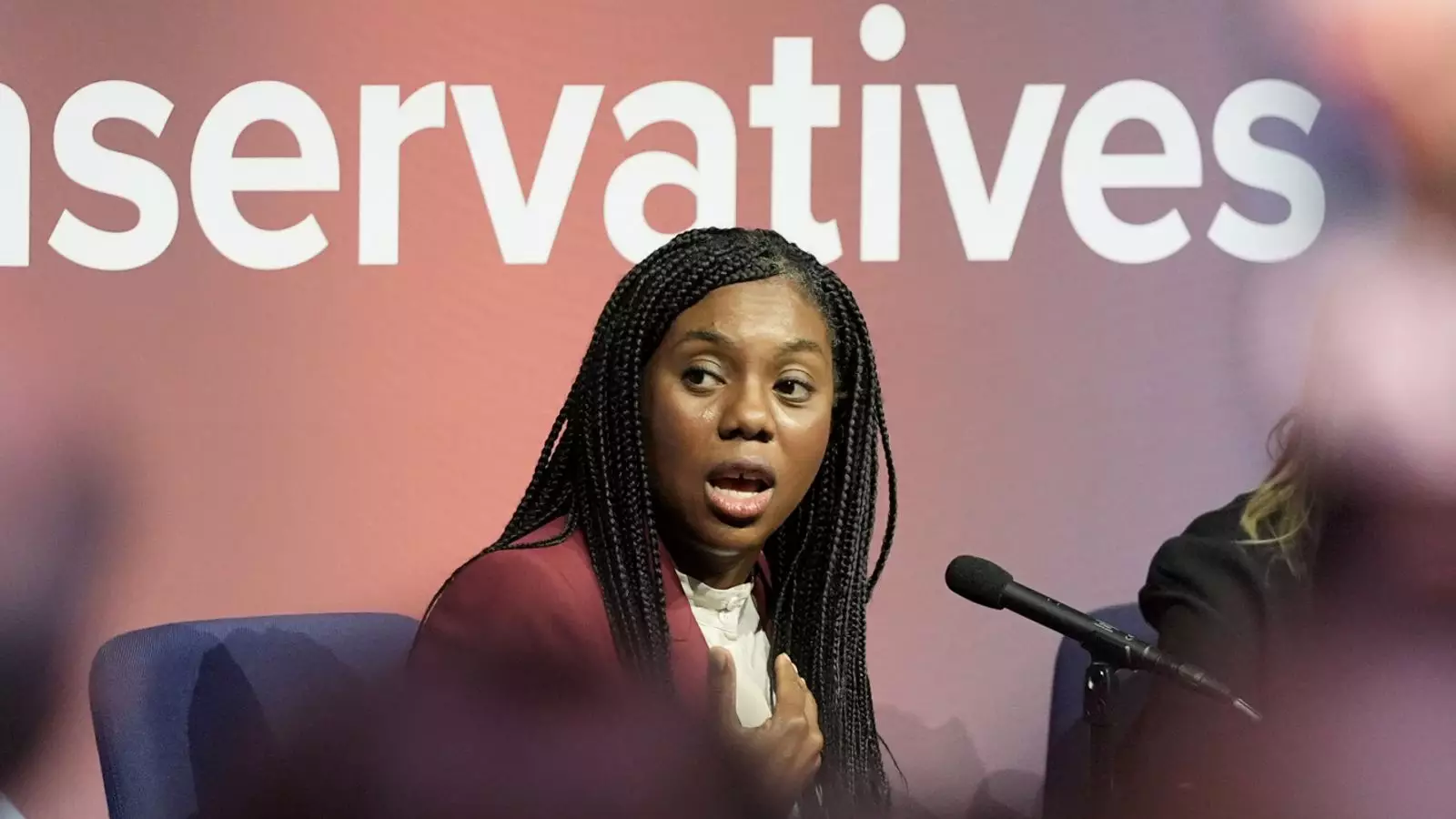Kemi Badenoch, currently a significant figure vying for the Conservative leadership, recently ignited controversy by condemning a portion of civil servants as “very bad” and suggesting that they “should be in prison.” Her statements, made at a fringe event during a party conference, were directed toward those within the civil service who she accused of leaking official secrets and undermining government ministers. This bold assertion drew immediate backlash from prominent figures, notably from Dave Penman, the general secretary of the FDA union, which represents civil servants. Penman demanded substantiation for Badenoch’s claims, arguing that without evidence, such serious allegations could not only harm careers but impair public trust in governmental institutions.
Badenoch’s comments emerged amidst a debate about the efficiency and integrity of the civil service, often a contentious topic in British politics. Her statements come at a time when political leaders have increasingly sought to position themselves as champions of accountability and reform. The civil service, seen as a bastion of entrenched interests, is frequently depicted in political discourse as needing sweeping changes. By claiming that 5 to 10% of civil servants are unworthy of their positions, Badenoch attempts to draw clear lines between what she perceives as the diligent workers and those she labels as incapable detractors.
Critically, Badenoch characterized the situation in a way that not only demonizes a small group but polarizes the overall public perception of civil servants. With the statistical implication that as many as 25,000 individuals may fall into the “bad” category—if based on the total civil servant count of 510,665—it raises ethical questions regarding her narrative. Such sweeping generalizations could foster a culture of distrust, not only between the government and its civil servants but also within the administration at large.
Badenoch’s rhetoric leverages a populist approach. By presenting herself as a “straight talker,” she aims to resonate with voters who express dissatisfaction with conventional political speech characterized as evasive or disingenuous. This portrayal aligns with her broader strategy of positioning herself as a candidate committed to transparency and straightforwardness, qualities increasingly desired by the electorate. However, the price of such rhetoric is often volatility, as it can provoke fierce opposition and escalate tensions within political discourse.
Moreover, the claim that her remarks were merely a “joke,” as suggested by a source close to her, further complicates the narrative. While humor can serve as a tool for easing tensions, it can equally diminish the gravity of serious discussions about public service integrity and governance. The attempt at levity appears inadequate in the face of allegations that have real consequences in the world of public employment and trust in government systems.
As Badenoch contends with escalating scrutiny from her peers and opponents, the ramifications of her remarks could extend beyond personal accountability. The civil service operates on the principles of neutrality and competence, and when those in leadership positions make sweeping accusations, they risk undermining the pillars that support institutional integrity. Penman’s insistence on the need for evidence highlights the friction between political narrative and the reality of public administration, placing Badenoch in a precarious position.
Reflection on leadership traits emerges as central to this discussion. The ability to navigate complex and often contentious political landscapes while upholding public trust is critical for anyone aspiring to lead. Badenoch’s approach, while arguably appealing to a faction of the party base, reveals the inherent risks of conflating populist sentiment with responsible governance—a fine line that leaders must tread carefully.
Kemi Badenoch’s comments have stirred a significant reaction, underscoring the complexities of political leadership in a charged environment. The upcoming weeks will reflect the broader implications of her rhetoric, particularly as other contenders like Robert Jenrick and James Cleverly close the gap in leadership support. As post-election dynamics unfold, the emphasis on integrity, accountability, and the balance between populism and governance will likely shape not only the trajectory of Badenoch’s campaign but also the future priorities of the Conservative Party.
The intersection of political ambition and the responsible management of civil services remains fraught with challenges. Badenoch’s remarks serve as a case study in the intricacies of modern political communication, highlighting the potential consequences of a culture war narrative in shaping public perception and institutional trust. How she navigates this turbulent landscape will be crucial in determining both her destiny and that of her party in the days ahead.


Leave a Reply